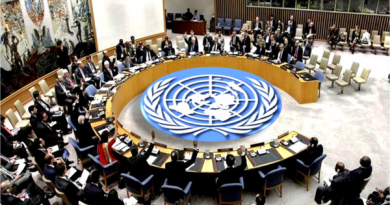Spaces for change, NEITI, NOSDRA, others canvass for sustainable development of mineral sector
Spaces for Change (S4C), Nigeria Extractive Industries Transparency Initiative (NEITI), National Oil Spill Detection and Response Agency (NOSDRA), and other stakeholders have called for the sustainable development of Nigeria’s mineral sector with increased participation of host communities.
The stakeholders made the call at the ongoing National Extractive Dialogue 2025 (NED) on the theme ” Transitions, Divestments and Critical Minerals: Charting A Just Future for Nigeria’s Extractive Sector”, in Uyo, Akwa Ibom state, adding that harnessing Nigeria’s critical minerals is necessary for the global clean energy transition.
The Executive Director, Spaces for Change, Mrs Victoria Ibezim-Ohaeri, said that as the world raced towards energy transition, Nigeria should make informed choices on regulation, environmental accountability and community protection.
She said: “The exploration and production of oil and gas have already impacted the communities. The environment has not been restored before the International Oil Companies, IoCs divestment of assets to indigenous companies. We should not allow what happened to oil and gas communities to be extended to the mining sector.”
Similarly, the Executive Secretary, Dr Orji Orji, said that NEITI has already established a data centre to automate and centralise extractive sector data.
He said: “When fully operational, the data centre will centralise licensing, production, revenue, and export data across oil, gas, and solid mineral sectors.
“It will enhance transparency and accountability in the sector, and enable automated disclosures by companies in line with NEITI standards.
He said that the data centre represented NEITI’s commitment to intelligent, accessible, and actionable transparency in a data-driven world.
The executive secretary said that there was need for a coordinated approach towards handling the challenges and opportunities arising from the global shift to clean energy, divestments, and the growing demand for critical minerals.
On his part, the Chairman of the Senate Committee on Solid Minerals, Senator Ekong Sampson, said: “The Senate is committed to the sustainable development of the sector. We have visited some mining sites that looked like mass graves. Operators must be held accountable for their actions or activities. So, we are open to collaborations with stakeholders for proper community engagement.”
Also, Mr Gaza Gbefwi, the Chairman, House of Representatives Committee on Solid Minerals, expressed the need for urgent policy actions towards harnessing Nigeria’s critical minerals that were essential for the global clean energy transition.
Gbwefi said that an International Energy Agency report, projected that the demand for critical minerals such as lithium, cobalt, nickel, graphite, and rare earth elements would quadruple by 2040.
“The global transition to clean energy has intensified the race for critical minerals such as lithium, cobalt, nickel, graphite, and rare earth elements.
“These minerals are essential inputs in electric vehicles, solar panels, wind turbines, and battery storage among others,” he said.
Furthermore, the Director General, National Oil Spill Detection and Response Agency (NOSDRA), Mr Chukwuemeka Woke, highlighted the critical moment Nigeria’s extractive sector was facing as the world shifted towards low-carbon energy systems.
Represented by Mrs Margaret Adesida, Director, ICT/GIS, Woke said that several divestment deals involving major international oil companies had been initiated or concluded.
However, HRM King Bubaraye Dakola Agada 1V, Ibenanaowei of Ekpetiama Kingdom, called for more proactive actions, capable of preventing negative impact on communities and other stakeholders.




